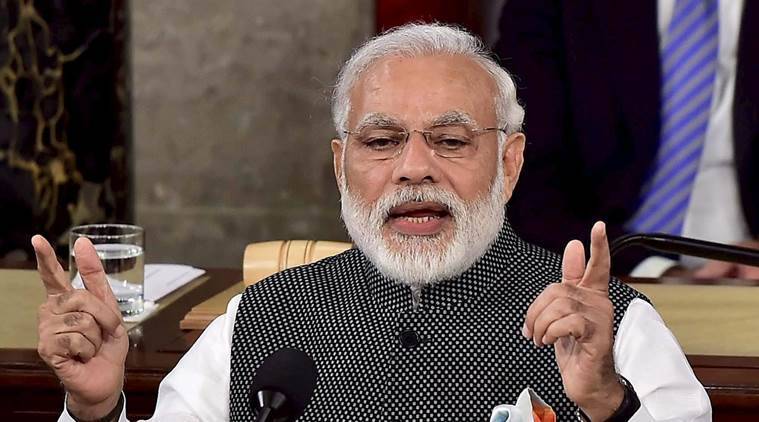NEW DELHI: A Pew survey published recently on Indian attitudes shows that nearly half of respondents across the border do not approve of Indian Prime Minister Narendra Modi's policies concerning Pakistan.
The survey aims to shed light on what Indians think about their country, their government and potential for the future.
About half of Indians surveyed take a disapproving stance on Indian Prime Minister Narendra Modi's Pakistan policies. 22pc of respondents, however, approve of his handling of Pak-India ties.
Although 73pc of respondents appear to have "uniformly negative" view of Pakistan, around 55pc of Indians polled go a step further with a 'very unfavourable' opinion towards Pakistan.
The Pew survey says negative Indian sentiment towards Pakistan has risen 9 points since 2015.
The second 'least popular' country appears to be China, with 36pc of respondents holding an 'unfavourable' opinion of the People's Republic.
More than 60pc of respondents think India should continue increasing defence expenditure, 20pc want to keep it at current levels, whereas just 6pc believe it should be decreased.
"Notably, Indians who see China’s growing military power as a very serious problem are more likely than those who see China’s growing military power as a less serious threat to favour increased military spending," the Pew report said.
Around 62pc of respondents believe that 'overwhelming military force' is the best way to defeat terrorism, whereas only 21pc feel that relying on force creates hatred and more terrorism.
Beijing's ties with Islamabad are also a serious matter of concern for nearly half of all respondents. Another 21pc see Pak-China friendship as a 'somewhat serious challenge'.
China's economic impact on India is a 'serious problem' for about seven-in-ten of those surveyed, which include 45pc who believe it is 'very serious'.
Despite Indians' 'serious concerns' about China and Pakistan, climate change and the militant Islamic State (IS) group are at the top of a list of international threats named by over half of all respondents.






